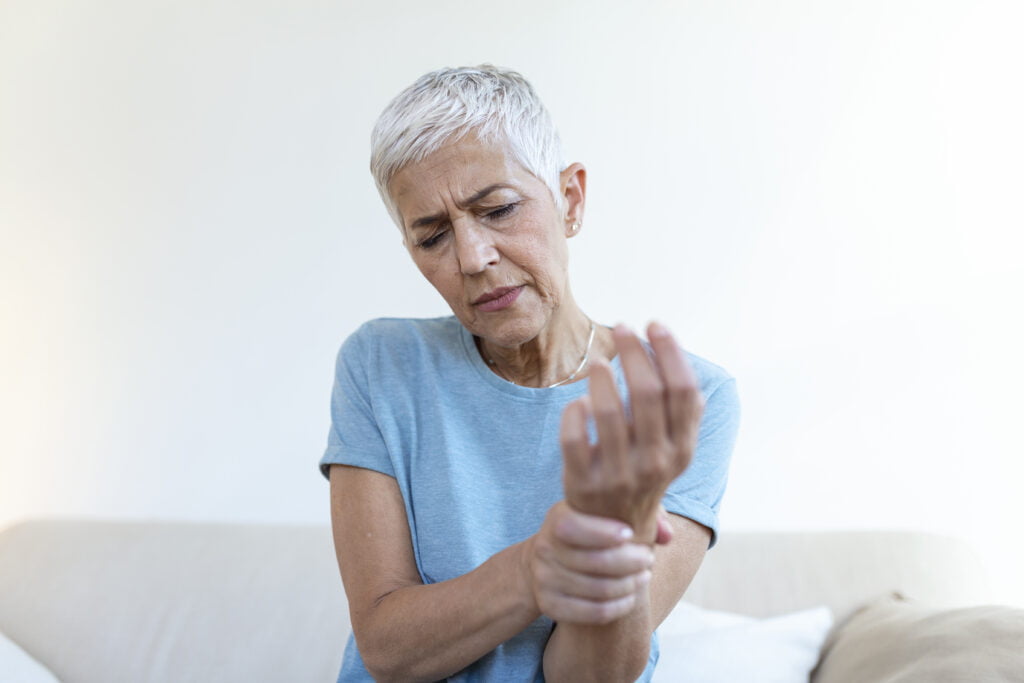FREE SHIPPING OVER $50
Pain Free Without Pills: 7 Lifestyle Changes for Arthritis Relief
The likelihood of developing arthritis increases as we grow older. In fact, approximately 23% of adults in the US have arthritis, with osteoarthritis being the most common form. Although medication can help alleviate the pain associated with arthritis, there are also lifestyle changes that can provide arthritis relief without the use of pills. In this article, we will cover 7 lifestyle changes that can help you live pain-free with arthritis.
Arthritis Relief Without Pills

If you happen to be one of the millions of people who suffer from arthritis, you know how wearying it can be. While medications can help, it’s not always the best solution. In this article, we’ll cover 7 lifestyle changes you can provide arthritis relief without relying on medication.
Exercise Regularly
Exercise is one of the best things you can do for arthritis relief. Regular exercise helps to strengthen the muscles around your joints, providing them with additional support. Additionally, exercise helps to improve flexibility and range of motion, which can reduce stiffness and pain. Low-impact exercises like swimming, walking, and yoga are ideal for people with arthritis. High impact exercises also help because they build and maintain bone density and improve overall joint health. High impact exercises can also cause further damage to the joints so it is best to consult a physical therapist before going ahead with it.
Eat a healthy diet
Eating a healthy diet is important for everyone, but it’s especially important for people with arthritis. A diet that’s rich in fruits, vegetables, whole grains, and lean protein can help to reduce inflammation, which is a major contributor to arthritis pain. Additionally, maintaining a healthy weight can help to reduce the stress on your joints.
Get Plenty of Sleep
Getting enough sleep is important for everyone, but it’s especially important for people with arthritis. A study published in the journal Arthritis & Rheumatology found that people who slept poorly had higher levels of inflammation markers in their blood. Sleep helps to reduce inflammation, which can help to alleviate pain. Additionally, getting enough sleep can also help with pain management, as the body releases natural painkillers during sleep. According to the National Sleep Foundation, adults should aim for 7-9 hours of sleep per night.
Reduce Stress
Stress can intensify arthritis pain, so it’s important to find ways to reduce stress in your life. Exercise is a great way to reduce stress, as is meditation, deep breathing, and other relaxation techniques. Additionally, making time for activities you enjoy, such as reading or spending time with friends, can also help to reduce stress.
Use Heat and Cold Therapy
Heat and cold therapy can help to reduce arthritis pain. Heat can help to relax muscles and increase blood flow to the affected area, while cold can help to reduce inflammation and numb the area. You can use heat and cold therapy in a variety of ways, including taking a warm bath or shower, using a heating pad or ice pack, or using topical creams.
Consider Acupuncture
Acupuncture is a form of traditional Chinese medicine that involves the insertion of thin needles into specific points on the body. Although the mechanism of action is not well understood, acupuncture has been shown to provide pain relief for people with arthritis.
Seeing Your Doctor Regularly
If you’re suffering from arthritis pain, it is important to schedule regular visits to your doctor. Your doctor can help you develop a treatment plan that’s tailored to your specific needs. Additionally, your doctor can help you identify any lifestyle changes you can make to help alleviate your pain. Scheduling regular appointments and following them through would be a big help to your overall health. So why not do yourself a favor and call your doctor to get a checkup.
FAQs
Q: Can arthritis be cured?
A: There is no cure for arthritis, but there are many treatments that can help alleviate pain and slow the progression of the disease.
Q: Can exercise make arthritis worse?
A: No, exercise can actually help to improve arthritis symptoms by strengthening the muscles around your joints.
Q: What foods should I avoid if I have arthritis?
A: Foods that are high in sugar, saturated fat, and processed foods can exacerbate inflammation and should be avoided.
Q: Is acupuncture safe?
A: Acupuncture is generally considered safe when performed by a professional.
Q:Are there any supplements that can help with arthritis pain?
A: Some supplements that may help with arthritis pain include glucosamine and chondroitin, but it’s important to talk to your doctor before trying any new supplements.
Q: Are there any natural remedies for arthritis pain?
A: Some natural remedies that may help with arthritis pain include turmeric, ginger, and omega-3 fatty acid supplements. However, it’s important to talk to your doctor before trying any new supplements or remedies.
Conclusion
Managing arthritis pain requires a comprehensive approach that involves lifestyle changes, medical treatment, and a positive mindset. By making simple changes to your daily routine such as exercise, diet, and getting enough sleep, you can significantly reduce arthritis pain and improve your overall quality of life. It is also important to consult with your doctor and physical therapist to develop a personalized plan for managing your arthritis symptoms.
We hope that these tips have been helpful in managing your arthritis pain. If you have any questions or concerns, feel free to reach out to us on our social media platforms. Don’t forget to follow us on Facebook, Instagram and Pinterest for more health and wellness tips.







